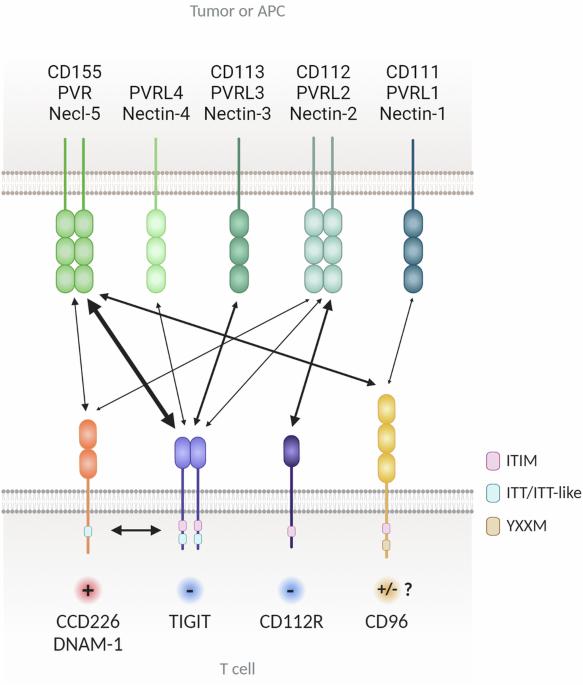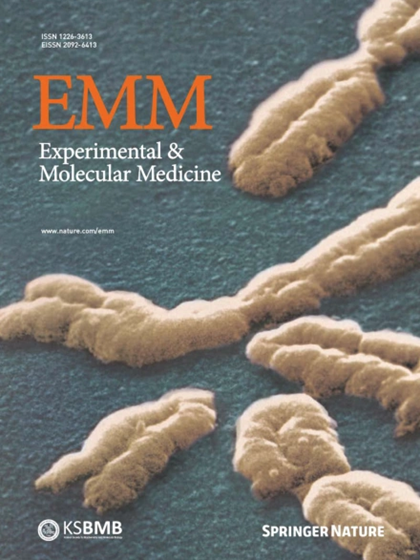Revisiting T-cell adhesion molecules as potential targets for cancer immunotherapy: CD226 and CD2
IF 9.5
2区 医学
Q1 BIOCHEMISTRY & MOLECULAR BIOLOGY
引用次数: 0
Abstract
Cancer immunotherapy aims to initiate or amplify immune responses that eliminate cancer cells and create immune memory to prevent relapse. Immune checkpoint inhibitors (ICIs), which target coinhibitory receptors on immune effector cells, such as CTLA-4 and PD-(L)1, have made significant strides in cancer treatment. However, they still face challenges in achieving widespread and durable responses. The effectiveness of anticancer immunity, which is determined by the interplay of coinhibitory and costimulatory signals in tumor-infiltrating immune cells, highlights the potential of costimulatory receptors as key targets for immunotherapy. This review explores our current understanding of the functions of CD2 and CD226, placing a special emphasis on their potential as novel agonist targets for cancer immunotherapy. CD2 and CD226, which are present mainly on T and NK cells, serve important functions in cell adhesion and recognition. These molecules are now recognized for their costimulatory benefits, particularly in the context of overcoming T-cell exhaustion and boosting antitumor responses. The importance of CD226, especially in anti-TIGIT therapy, along with the CD2‒CD58 axis in overcoming resistance to ICI or chimeric antigen receptor (CAR) T-cell therapies provides valuable insights into advancing beyond the current barriers of cancer immunotherapy, underscoring their promise as targets for novel agonist therapy. Immunotherapy, including immune checkpoint inhibitors and adoptive T-cell therapy, has transformed cancer treatment, yet durable responses are limited to a minority of patients. Anticancer immunity, shaped by co-inhibitory and co-stimulatory signals in tumor-infiltrating immune cells, underscores co-stimulatory receptors as promising targets for immunotherapy. This review explores the roles of CD226 and CD2 in regulating T cell responses, particularly in tumor immunity. CD2 and CD226, primarily on T and NK cells, are crucial for cell adhesion and recognition, known for their role in overcoming T cell exhaustion and boosting anti-tumor responses. The review examines their potential as targets in novel cancer immunotherapeutic strategies. This summary was initially drafted using artificial intelligence, then revised and fact-checked by the author.

重新审视作为癌症免疫疗法潜在靶点的 T 细胞粘附分子:CD226 和 CD2
癌症免疫疗法旨在启动或扩大免疫反应,从而消灭癌细胞并形成免疫记忆以防止复发。免疫检查点抑制剂(ICIs)靶向免疫效应细胞上的共抑制受体,如 CTLA-4 和 PD-(L)1,在癌症治疗方面取得了重大进展。然而,它们在实现广泛而持久的反应方面仍面临挑战。抗癌免疫的有效性是由肿瘤浸润免疫细胞中的共抑制信号和成本刺激信号的相互作用决定的,这凸显了成本刺激受体作为免疫疗法关键靶点的潜力。这篇综述探讨了我们目前对 CD2 和 CD226 功能的理解,特别强调了它们作为癌症免疫疗法新型激动剂靶点的潜力。CD2 和 CD226 主要存在于 T 细胞和 NK 细胞中,在细胞粘附和识别中发挥着重要功能。这些分子目前已被公认具有成本刺激作用,特别是在克服 T 细胞衰竭和增强抗肿瘤反应方面。CD226 和 CD2-CD58 轴在克服 ICI 或嵌合抗原受体 (CAR) T 细胞疗法的抗药性方面的重要性,尤其是在抗 TIGIT 疗法中的重要性,为超越目前癌症免疫疗法的障碍提供了宝贵的见解,突显了它们作为新型激动剂疗法靶点的前景。
本文章由计算机程序翻译,如有差异,请以英文原文为准。
求助全文
约1分钟内获得全文
求助全文
来源期刊

Experimental and Molecular Medicine
医学-生化与分子生物学
CiteScore
19.50
自引率
0.80%
发文量
166
审稿时长
3 months
期刊介绍:
Experimental & Molecular Medicine (EMM) stands as Korea's pioneering biochemistry journal, established in 1964 and rejuvenated in 1996 as an Open Access, fully peer-reviewed international journal. Dedicated to advancing translational research and showcasing recent breakthroughs in the biomedical realm, EMM invites submissions encompassing genetic, molecular, and cellular studies of human physiology and diseases. Emphasizing the correlation between experimental and translational research and enhanced clinical benefits, the journal actively encourages contributions employing specific molecular tools. Welcoming studies that bridge basic discoveries with clinical relevance, alongside articles demonstrating clear in vivo significance and novelty, Experimental & Molecular Medicine proudly serves as an open-access, online-only repository of cutting-edge medical research.
 求助内容:
求助内容: 应助结果提醒方式:
应助结果提醒方式:


